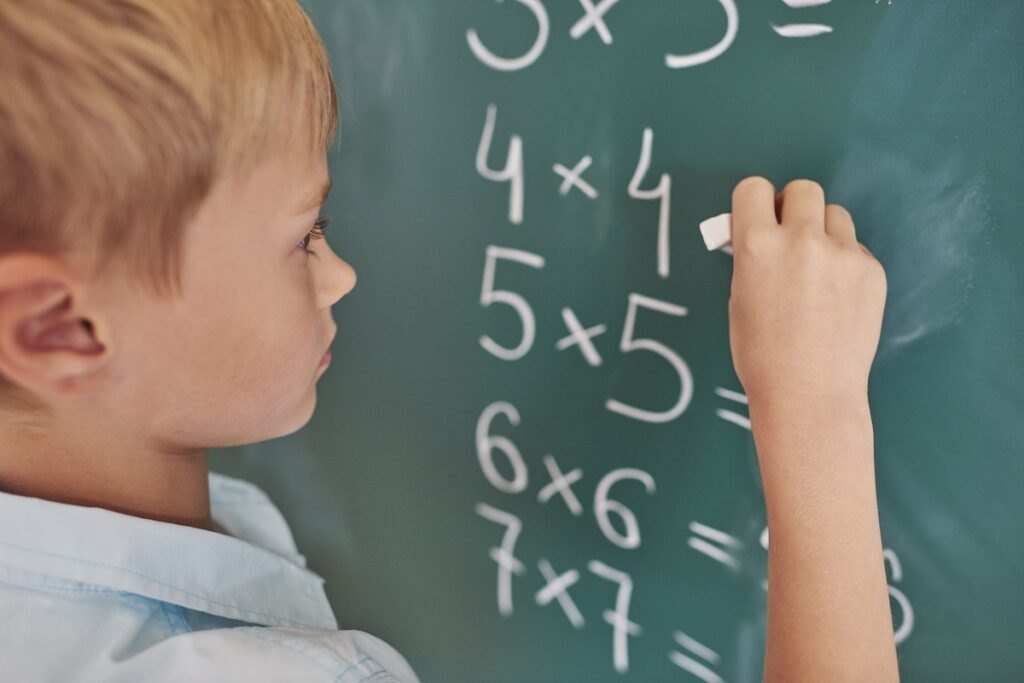Hello parents and guardians!
Have you ever heard your children say, “Math is hard!” or “I can’t memorize the multiplication table!”? Don’t worry, you are not alone in this situation! Here are some ideas that may help in this process.
Teach through play
Set up math games and activities that engage the multiplication table. For example, you can use a battleship game board where the coordinates along the X and Y axes are numbers that the child must multiply to guess the location of the ship. Fun makes learning more interesting and increases the child’s engagement.
Use board games, playing cards, or mobile apps that offer learning the multiplication table in an engaging way. Children love competition, so suggest a game where they can earn points for correct answers.
Visualization
Use various visual tools, such as blocks, an abacus, or colored paper, to illustrate multiplication operations. Children often understand and remember math better when they see it in an accessible way related to real objects. For example, if you want to teach multiplication by 3, use three colored blocks and ask the child to see what 3 times 2 is.
Use everyday situations
Use everyday situations for practical learning of the multiplication table. For example, if you are cooking with your child and need to double the amount of ingredients, take this opportunity to show how to multiply a given number by 2. You can ask the child to count the number of fruits or cookies while preparing dessert, or to multiply the number of toys they have in their collection. Show the child that the multiplication table has practical applications in life.
Create keepsakes
Creating keepsakes that the child can regularly review can be helpful. You can create a colorful multiplication table that the child can hang on the wall in their room. This way, the multiplication table will become a part of the child’s daily environment, and they can refer to it at any time.
Songs and rhymes
Melodies can work wonders! Introduce the multiplication table through songs or rhymes. Such pleasant sounds will help in remembering more difficult equations and make learning more fun.
Patience and a Positive Attitude
Patience, patience, and once again patience… Remember that every child has their own learning pace. For some, the multiplication table comes quickly, but for others, it may be more complicated. It is important that you are patient and support your children in the learning process. Do not expect immediate results, but celebrate every progress, no matter how small.
Reward Progress
When you see that your child is trying and succeeding, don’t forget to praise and reward them. This is extra motivation for them to continue learning and develop their math skills.
Remember that every child is unique and may have different preferences and learning styles. Some will be more inclined to visualization, others to listening or active participation. Therefore, it is important to experiment with different methods and adapt them to the individual needs of the child.
Learning the multiplication table can be not only effective but also full of joy and fun. By introducing these simple, friendly and interactive methods, you will help your children achieve success in learning math and build a strong foundation for future development.
Believe in your children, be patient, and give them time to explore the mathematical world of the multiplication table.
I wish you a fruitful and enjoyable adventure in this learning!


